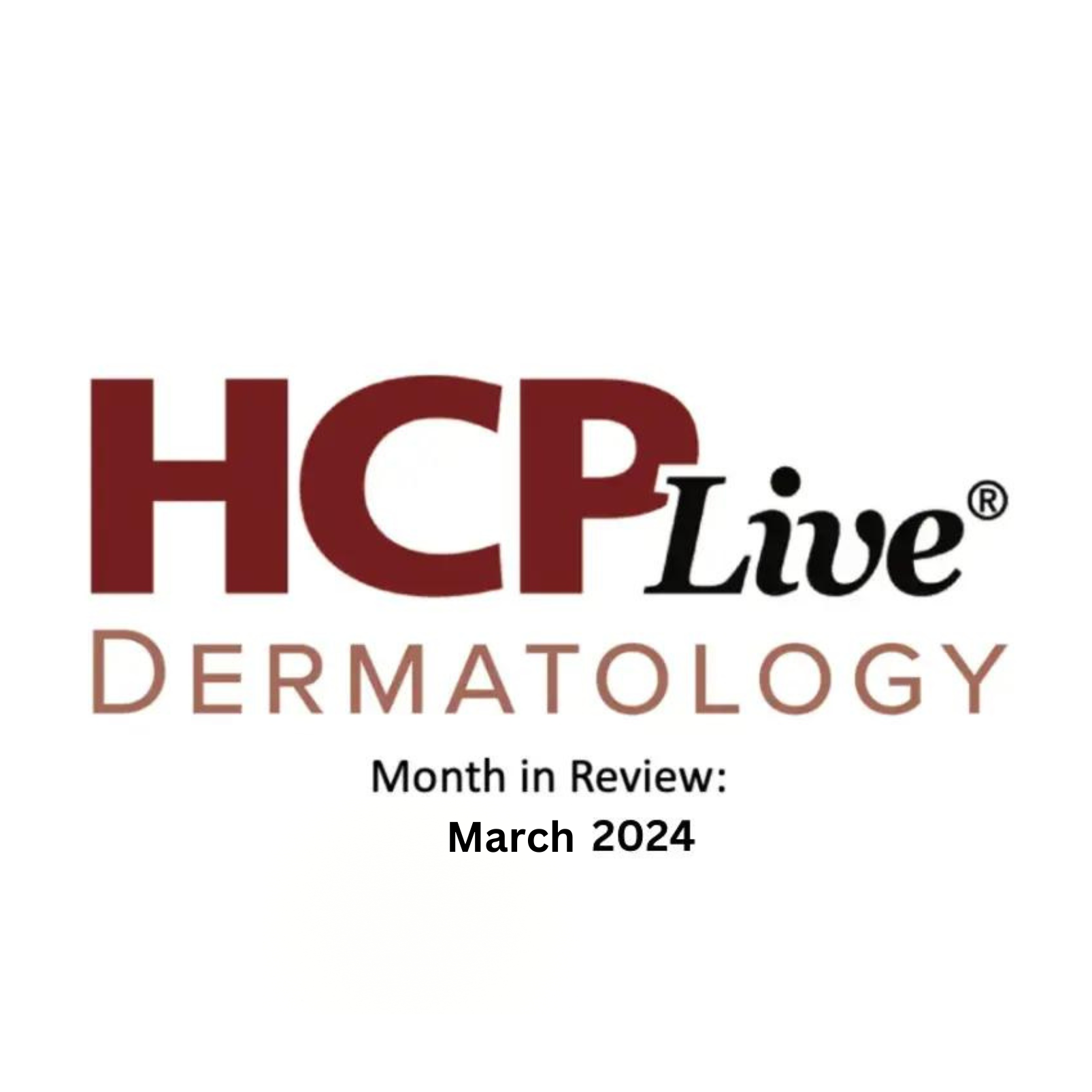Dermatology Month in Review: March 2024
In this review of the top stories in dermatology in March, several were highlighted such as the recent report on benzene in skincare products and the FDA’s approval of spesolimab for generalized pustular psoriasis.

In March 2024, the field of dermatology witnessed several major advancements in treatment research, with many promising clinical trial results being presented at the 2024 American Academy of Dermatology (AAD) Annual Meeting. There were several other stories of notable significance in the field this March as well.
Such advancements suggest a dynamic and evolving landscape in dermatological care, and this review highlights many of these advancements. Here, we include a highlighted list of interviews, FDA news, and more, with special emphasis on several non-AAD stories due to the high volume of prior coverage (for more information, view our conference coverage page).
James Q. Del Rosso, DO: Discussing News of Benzene Exposure in Acne Skincare Products
https://www.hcplive.com/view/james-del-rosso-discussing-news-benzene-exposure-acne-skincare-products
During an interview with HCPLive, James Q. Del Rosso, DO, dermatologist and research director of JDR Dermatology Research, provided his own personal commentary on the reports by autonomous quality assurance organization Valisure indicating the existence of concerning levels of the human carcinogen benzene in acne treatment products with benzoyl peroxide (BPO).
“The safety of the public is of number 1 concern to all of us,” Del Rosso said. “...But there needs to be an appropriate evaluation of what all this means and what the final outcome is going to be. Because benzoyl peroxide is used all over the world. It's been used for over 5 decades. I believe it was first in the 1960s when it started to be used, and I was a little kid then. So it's been around for a long time.”
Dermatologists, Patients Divided on Augmented Intelligence for Melanoma Screening
In more new findings this March, differences were observed in dermatologists and patients’ opinions on the implementation of artificial or augmented intelligence for screenings of skin cancer. Patients were shown to have a preference for 3D-total-body photography (TBP) and clinicians tended to value their own decision-making over AI in screenings.
This research had been conducted to assess the subjective experiences of dermatologists and patients following screening for skin cancer, looking at the commercially-available 2D/3D TBP systems and at convolutional neural network (CNN)-classification. The trial investigators noted that while there had been prior data on AI’s diagnostic accuracy, patient and physician acceptance of such developments had been less well-known prior to their research.
Andrew F. Alexis, MD, MPH: Discussing Controversies in Acne, Rosacea
https://www.hcplive.com/view/andrew-alexis-discussing-controversies-in-acne-rosacea
In a March episode of DocTalk, Andrew F. Alexis, MD, MPH, the vice-chair for diversity in the department of dermatology and professor of clinical dermatology at Weill Cornell Medical College in New York, spoke on the biggest takeaways from his presentation given at AAD called ‘Controversies in Acne and Rosacea.’
Alexis highlighted the necessity of tailoring management strategies for acne and rosacea to individuals’ specific needs, with greater attention necessary for those of diverse skin types and backgrounds. He discussed specific treatments such as topical retinoids such as trifarotene in managing post-inflammatory hyperpigmentation (PIH) in patients with darker skin tones.
“I think improving our knowledge and understanding of rosacea across diverse patient populations, including those with skin of color, would be helped by including more diverse patients in our clinical trials,” Alexis explained. “...That would allow us to be able to potentially perform comparative analyses, if the sample sizes are large enough to allow that, and it would also help to change the perception that rosacea is something that one is only going to see in individuals with lighter skin complexion…”
Spesolimab Approved in US, China for Generalized Pustular Psoriasis in Patients 12 and Older
In another major story covered in March, an announcement by Boehringer Ingelheim described the US Food and Drug Administration’s (FDA) approval of spesolimab-sbzo (Spevigo) injection for the treatment of generalized pustular psoriasis (GPP) in individuals aged 12 years and older with a weight of ≥40 kg.
Spesolimab represents the first FDA-approved drug for GPP treatment. The decision by the FDA coincided with the Chinese National Medical Products Administration’s (NMPA) approval of subcutaneous spesolimab treatment for GPP with these same parameters for GPP.
The drug itself is a novel, humanized selective IgG1 antibody which helps to affect the interleukin-36 receptor (IL-36R). This receptor has been shown to be a critical part of the body’s immune system signaling pathway and impacts GPP.
Raj Chovatiya, MD, PhD: Takeaways from New Data on Vitiligo, Atopic Dermatitis, HS Treatments
In a post-AAD interview conducted to reflect upon some of the biggest developments in the field in March, Raj Chovatiya, MD, PhD, MSCI, FAAD, associate professor at Rosalind Franklin University Chicago Medical School, highlighted new treatment data on such conditions as psoriasis, atopic dermatitis (AD), and hidradenitis suppurativa (HS), and spoke on their significance.
Chovatiys noted that there had been newly-presented data on upadacitinib, which had shown that after a year, patients with nonsegmental vitiligo were beginning to have higher levels of re-pigmentation. This was seen not only in their facial areas but also some of the harder to re-pigment regions of patients’ bodies.
Chovatiya also expressed the importance of the new phase 2 data on lutikizumab for patients with hidradenitis suppurativa (HS), as well as the tapinarof data he himself had contributed to regarding a patient cohort of atopic dermatitis with skin of color. He noted that the study had re-confirmed conclusions that scores at the point of baseline can vary based on a patients' perception of their erythema, as well as of hyper and hypopigmentation.
The quotes contained in this summary of March’s biggest stories were edited for clarity.